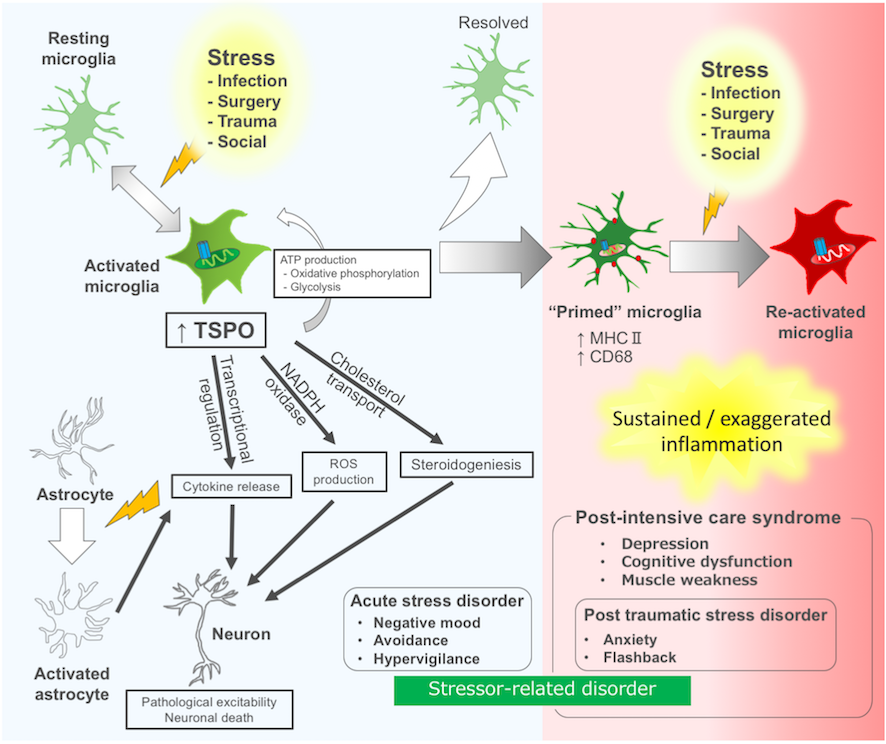 Photo by Usman Yousaf on Unsplash
Photo by Usman Yousaf on Unsplash
Physical stress such as infection and trauma, often causes a variety of outcome. COVID-19 outbreak in 2020 would likely result in an increase in intensive care survivors who would frequently develop anxiety, depression and PTSD as a part of post intensive care syndrome (PICS). Survival rates for critically ill patients are increasing as medical science advances, but with it PICS in survivors is becoming a major medical problem.
Convergent lines of evidence recently supported that physical and emotional stress induced inflammatory responses in the central nervous system. Microglia play a pivotal role in induction and expansion of the neuroinflammatory reactions. Activated microglia are known to secrete the signaling molecules such as reactive oxygen species (ROS) and cytokines, which mediates the interplay between neurons and glia.
As a collaborative study with Department of Emergency and Critical Care Medicine in Hiroshima University, We have just published a review paper which discusses recent advances in the studies on the role of translocator protein 18 kDa (TSPO) in microglial activation and in stressor-related disorders associated with anxiety and depression.
K Kikutani, H Giga, K Hosokawa, N Shime, H Aizawa, Microglial translocator protein and stressor-related disorder. Neurochem Int (2020), in press [Link]

Recent studies collectively support the view that upregulation of TSPO in microglia in response to the various physical and mental stress underlies pathophysiology of psychiatric symptoms. Future study may enable us to make use of TSPO as a probe to monitor the chronic time course of the stressor-related disorders in the survivors from the intensive care.
#Neurobiology #Hiroshima #Brain #神経 #広島 #脳